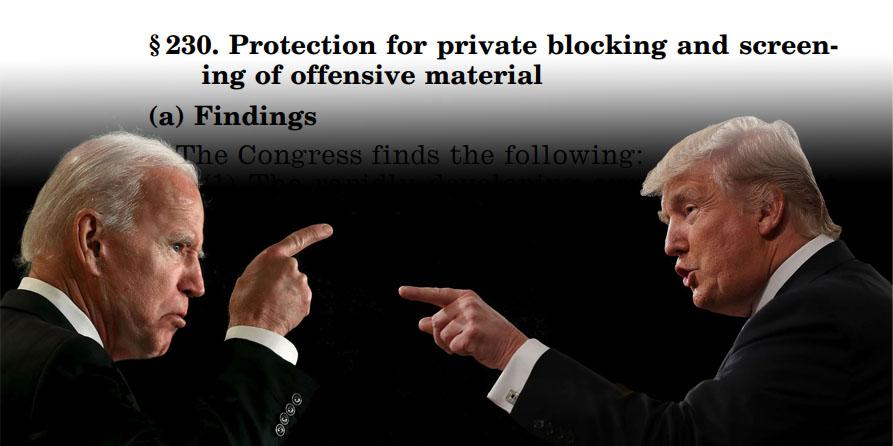Washington D.C., September 8, 2020 – Now that the Republican and Democratic parties have officially confirmed President Donald J. Trump and former Vice President Joseph R. Biden, Jr as their respective presidential nominees, the Cyber Vault will take a closer look at what cybersecurity and digital policy might look like under either a Trump or Biden administration. Over the coming weeks, future postings will review documents that provide insights into how key areas of cybersecurity policy, such as critical infrastructure protection, cyber diplomacy, and operations in cyberspace, might evolve in January 2021 and beyond.
One such critical area of continued scrutiny will undoubtedly be Section 230 of the Communications Decency Act of 1996 (47 U.S.C. § 230). Section 230 states that, “No provider or user of an interactive computer service shall be treated as the publisher or speaker of any information provided by another information content provider.” This clause provides social media platforms and other “interactive computer services” protection from legal claims and liability arising from content their users post, with the notable exceptions of sex-work related material, and violations of copyright and federal criminal law.
The Electronic Frontier Foundation asserts that the protections provided by Section 230 have made the United States “a safe haven for websites that want to provide a platform for controversial or political speech and a legal environment favorable to free expression.” However, such protections for free expression have also allowed a proliferation of both misinformation and disinformation on social media platforms. Democratic candidate Joe Biden has called for a repeal of Section 230, specifically to revoke the protections that shield social media platforms from legal responsibility for content their users post.
Additionally, Section 230 also protects the right of social media platforms and other providers to “restrict access to or availability of” material the provider finds objectionable, regardless of “whether or not such material is constitutionally protected.” While social media platforms have long resisted calls to censor or block misleading or fraudulent user content, the COVID-19 pandemic has spurred platforms like Twitter to more aggressively identify, and flag or block “disputed or misleading information.” Such platform policies have raised the concern that the current iteration of Section 230 allows social media platforms to suppress certain viewpoints and thus stifle free speech and discourse. On May 28, 2020, President Trump issued the “Executive Order on Preventing Online Censorship,” which states that when an online provider engages in “editorial conduct… it is the policy of the United States that such a provider should properly lose the limited liability shield of subparagraph (c)(2)(A) and be exposed to liability like any traditional editor and publisher that is not an online provider.” The full text of the executive order can be found below.
Finally, as part of a broader review of “market-leading online platforms and their practices,” the Department of Justice recently released a series of reform proposals to address concerns about the scope of immunity provided to platforms through Section 230. On February 19, 2020, the Department hosted both a public workshop and an expert roundtable to discuss the parameters and implications of Section 230 and possible reforms. Documents from those sessions, as well as the Department’s Key Takeaways and Recommendations, are also available below.
The Documents

Document 2
White House








